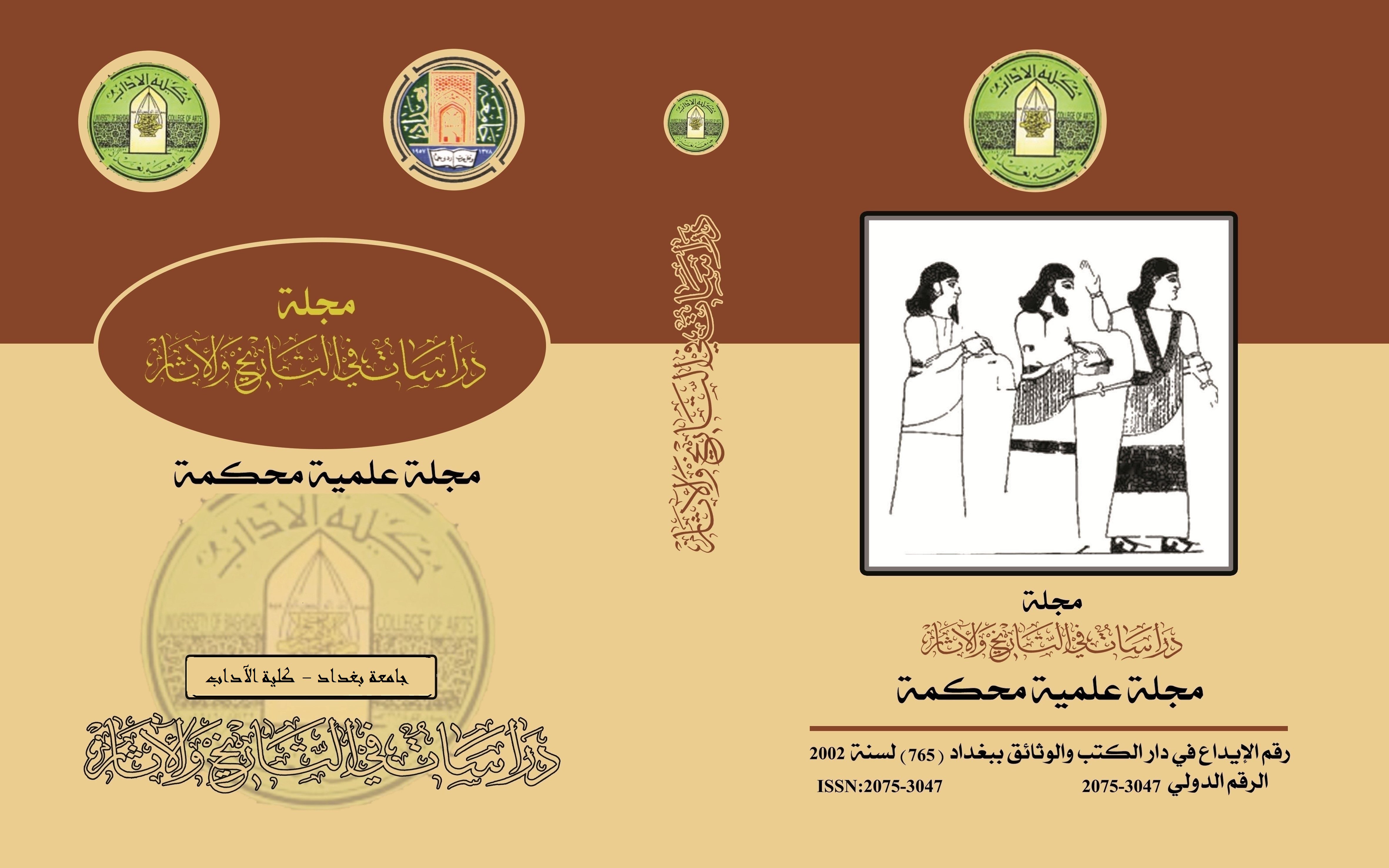الاتفاقية الأممية " النفط مقابل الغذاء" وتداعياتها على البنية الاقتصادية والمعرفية والمستوى المعاشي في العراق 1995-2003
الكلمات المفتاحية:
اتفاقية، مفاوضات، قرارات مجلس الامن، عوائد مالية، الأمن الغذائيالملخص
كانت العقوبات الاقتصادية التي فرضها مجلس الأمن الدولي على العراق , من خلال اصداره سلسلة من القرارات الأممية , خلقت اوضاعاُ صعبة , انعكست على الجانب الإنساني والظروف المعيشية الصعبة للأسرة العراقية, وادت الى تدمير البني التحتية , فضلاً عن تأثيرها على الظروف الصحية والتعليمية للمجتمع العراقي, ومن اجل تفادي كارثة إنسانية من جراء أثار الحصار الاقتصادي المدمر, عمل مجلس الأمن على اعادة هيكلية العقوبات الاقتصادية من خلال اصدار قرار رقم ( 986 ) في 14 نيسان 1995, ليتم من خلاله توقيع اتفاقية عرفت (النفط مقابل الغذاء ) , والتي سمحت لجميع الدول باستيراد النفط العراقي لتوفير عوائد مالية , لتحقيق الهدف الاساسي من الاتفاقية هو توفير الاحتياجات الإنسانية الاساسية من مواد غذائية وصحية ,على الرغم من فشل الاتفاقية في تحقيق جميع اهدافها , لاسيما في الجوانب الصحية والتعليمية والزراعية , لكنها عملت الى الحد من اثار الحصار من خلال دعمها لمفردات البطاقة التموينية , بتجهيزها بمواد غذائية ذات نوعية جيدة , والتي ساهمت بإنقاذ الملايين من ابناء الشعب العراقي ,لاسيما الفئات الفقيرة ومن ذوي الدخل المحدود .
المراجع
اولاً : الوثائق :
وثائق الامم المتحدة ( قرارات وتقارير مجلس الامن الدولي )
United Nations Security Council, (1990). Resolution 660. 2 August.
United Nations Security Council, (1995). Resolution 986. 14 April.
U.N.S.C ,(1990), Resolution 661, 6 August.
U.N.S.C ,(1990), Resolution 665,25 August.
U.N.S.C ,(1990), Resolution 670,25 August.
U.N.S.C ,(1991), Resolution 706, 15 August.
U.N.S.C, (1991), Resolution 712, 19 September .
U.N.S.C, (1997), Resolution 1143, 4 December.
U.N.S.C, (1998), Resolution 1153 , 30 May.
U.N.S.C, (2001), Resolution 1362 ,29 November .
U.N.S.C, (2002), Resolution 1409, 14 May .
U.N.S.C, (2002), Resolution 1443 , 25 November.
U.N.S.C,(2002), Resolution 1447 ,5 December.
U.N.S.C. (1997). Report of The Secretary Council Submitted Pursuant To Paragraph 11 of Resolution 986 (1995), 10 March,S/1997/206.
U.N.S.C.(1997), ). Report Secretary Council Submitted Pursuant To Paragraph 3 Of Resolution 1111(1997), 4 September,S/1997/685.
U.N.S.C, (1999), ). Report Secretary Council Submitted Pursuant To Paragraph 6 Of Resolution 1242(1999), 19 August,S/1999/896 .
U.N.S.C,(2000), ). Report Secretary Council Submitted Pursuant To Paragraph 5 Of Resolution 1392 (2000),29 November, 2000/1132/S.
U.N.S.C,(2000), ). Report Secretary Council Submitted Pursuant To Paragraph 28 and 30 Of Resolution 1284 (2000),10 March, S/2000/208.
U.N.S.C,(1998 ). Report Secretary Council Submitted Pursuant To Paragraph 4 Of Resolution 1143 (1997),4 March,S/1998/194.
U.N.S.C,(1998 ). Report Secretary Council Submitted Pursuant To Paragraph 10 Of Resolution 1153 (1998),19 September, S/1998/823,
U.N.S.C,(2001 ). Report Secretary Council Submitted Pursuant To Paoragraph 5 Of Resolution 1360 (2001),28 September, S/2001/857,
U.N.S.C, (1999),Review and Oppraisal Of The Implemen Tation of The Secarity Council Resolution 986(1995),Decemer 1996,November 1998,28 April ,S/1999/421.
U.N.S.C, (2001),Document S/2001/68,23 Jonuory,S/2001/521.
ثانياً : الكتب العربية والمعربة:-
باسيل يوسف بجك. (2006), العراق وتطبيقات الأمم المتحدة للقانون الدولي (1990-2005) دراسة توثيقية وتحليلية، ط1, بيروت: مركز دراسات الوحدة العربية.
تيم نبلوك ,(2001) ,العقوبات والمنبوذين في الشرق الاوسط (العراق ليبا السودان ),ط1 , بيروت , مركز الدراسات الوحدة العربية .
جمال محي الدين. (2009), العقوبات الاقتصادية للأمم المتحدة, د.م: دار الجامعة الجديدة.
جيف سيمونز. (1998), التنكيل بالعراق، العقوبات والقانون والعدالة، ط1. بيروت: مركز دراسات الوحدة العربية.
جيف سيمونز (2003),أستهدف العراق , العقوبات , الغارات في السياسة الامريكية ,ط1,بيروت :مركز دراسات الوحدة العربية.
رويديك أيليا أبي خليل. (2009), العقوبات الاقتصادية والدولية في القانون الدولي بين الفعالية وحقوق الإنسان، ط.. بيروت: منشورات الحلبي الحقوقية.
علي جميل حرب. (2013), نظرية الجزاء الدولي المعاصر، نظام العقوبات الدولية ضد الدول والأفراد، ط1,بيروت: منشورات الحلبي الحقوقية.
هانزفون سبونيك. (2001), تشريح العراق عقوبات التدمير الشامل التي سبقت الغزو, ترجمة حسن حسين عمرالايوبي,العراق: مركز دراسات الوحدة العربية.
ثالثاً : الكتب الانكليزية:
Alnasrawi, A. (2002). Iraq's Burdens: Oil, Sanctions and Underdrolopment. Westport.
. Grams,G.N.(1991),Multilateral Respones To The Irqi Inrasion
Of Kuwait, International Law.
رابعاً : الرسائل والاطاريح الجامعية :
تبينة عادل. (2017). العقوبات الأممية في ظل أحكام القانون القانون الدولي (أطروحة دكتوراه غير منشورة). الجزائر: كلية الحقوق والعلوم السياسية.
زواعي نصيرة. (2015). العقوبات الاقتصادية الدولية وآثارها على حقوق الإنسان العراق وليبيا أنموذجاً (رسالة ماجستير غير منشورة). الجزائر: كلية العلوم والسياسة.
ضاري رشيد السامرائي. (2015). مدى شرعية قرارات مجلس الأمن الدولي ضد العراق (أطروحة دكتوراه غير منشورة). بغداد: جامعة بغداد، كلية القانون.
عميش رشدي. (2016). العقوبات الاقتصادية كوسيلة ردع على المستوى الدولي (رسالة ماجستير غير منشورة). الجزائر: جامعة العربي بن مهيدي، كلية الحقوق والعلوم السياسية.
قردوح رضا. (2013). العقوبات الذكية، مدى اعتبارها بديلاً للعقوبات الاقتصادية التقليدية في علاقتها بحقوق الإنسان (رسالة ماجستير غير منشورة). الجزائر: جامعة الحاج لحضر (باتنة).
مديحة بن زكري علو. (2018). أثر العقوبات الاقتصادية الدولية على حق الشعوب في التنمية (أطروحة دكتوراه غير منشورة). الجزائر: جامعة مستغانم، كلية الحقوق والعلوم السياسية.
هشام شملاوي. (2002). الجزاءات الاقتصادية وأثرها على حالة حقوق الإنسان بالعراق (رسالة ماجستير غير منشورة). الجزائر: كلية الحقوق.
خامساً : البحوث والدراسات المنشورة :
إشراق طالب. (2019). رؤية واقعية لنظام البطاقة التموينية في العراق للمدة (1997، 2003) و(2003-2017). بغداد: الاقتصاد والعلوم السياسية "مجلة"، المجلد (25)، العدد110، جامعة بغداد.
أمل حمدي دكاك. (2007). أثر الحروبات والنزاعات المسلحة على الأسرة العربية , جامعة دمشق"مجلة" : المجلد 23، العدد الثاني.
حسن عبد علي كاظم الطائي ,ندى رضا جاسم . (2020). دور البطاقة التموينية في معالجة الأوضاع الاقتصادية (1990-1995). بابل: مركز بابل للدراسات الإنسانية "مجلة"، جامعة بابل، العدد (3)، المجلد(10).
دنيس هوليداني. (2001). الولايات المتحدة والأمم المتحدة وعقوبات حرب الخليج ضد العراق. المستقبل العربي "مجلة"، العدد 229.
رضا عبد الجبار الشمري. (2010). التحديات التي تواجه الأمن الغذائي في العراق. بابل: كلية التربية الأساسية "مجلة"، العدد (22).
سهام كامل محمد، وآخرون. (2014). وقع البطاقة التموينية وتأثيرها في الأمن الغذائي للمستهلك. بغداد: العراقية لبحوث السوق وحماية المستهلك "مجلة"، جامعة بغداد، المجلد السادس، العدد الثاني.
عباس سعدون رفعت، خضير ابراهيم سلمان. (2011). التعامل الأمريكي مع قضية العراق والكويت عام1990 وتأثير ذلك على دور الأمم المتحدة. بغداد: المستنصرية للدراسات الدولية (مجلة)، العدد53.
عبد الحسين سفيان. (2000), العقوبات الاقتصادية وحقوق الإنسان, المستقبل العربي "مجلة", بيروت: مركز دراسات الوحدة العربية، العدد الأول.
قحطان حسين طاهر. (2015). تقييم أداء الأمم المتحدة في تسوية النزاع العراقي- الكويتي. التربية الأساسية للعلوم التربوية والإنسانية "مجلة": العدد20، جامعة بابل.
لبنى رياض عبدالمجيد،وآخرون. (2017). العراق والفصل السابع من ميثاق هيئة الأمم المتحدة . الملوية للدراسات الاثارية والتأريخية "مجلة"، المجلد الرابع ,العدد السابع ,السنة الرابعة.
منصور العادلي. (1997). القانون الدولي والسياسية الخارجية للولايات المتحدة، السياسية الدولية "مجلة". العدد (127).
نغم حسين نعمة. (2015). إدارة العوائد النفطية ودورها في تعظيم ثروات العراق. بغداد: الغزي للعلوم الاقتصادية والإدارية "مجلة"، العدد35.
التنزيلات
منشور
إصدار
القسم
الرخصة

هذا العمل مرخص بموجب Creative Commons Attribution 4.0 International License.
:حقوق الطبع والنشر والترخيص
بالنسبة لجميع البحوث المنشورة في مجلة دراسات في التاريخ والآثار، يحتفظ الباحثون بحقوق النشر. يتم ترخيص البحوث بموجب ترخيص Creative Commons CC BY 4.0 المفتوح ، مما يعني أنه يجوز لأي شخص تنزيل البحث وقراءته مجانًا. بالإضافة إلى ذلك ، يجوز إعادة استخدام البحث واقتباسه شريطة أن يتم الاستشهاد المصدر المنشور الأصلي. تتيح هذه الشروط الاستخدام الأقصى لعمل الباحث وعرضه.
:إعادة إنتاج البحوث المنشورة من الناشرين الآخرين
من الضروري للغاية أن يحصل الباحثون على إذن لإعادة إنتاج أي بحث منشورة (أشكال أو مخططات أو جداول أو أي مقتطفات من نص) لا يدخل في نطاق الملكية العامة أو لا يملكون حقوق نشرها. يجب أن يطلب الباحثون إذنًا من مؤلف حقوق النشر (عادة ما يكون الناشر).
يطلب الإذن في الحالات التالية:
بحوثك الخاصة المنشورة من قِبل ناشرين آخرين ولم تحتفظ بحقوق النشر الخاصة بها.
مقتطفات كبيرة من بحوث أي شخص أو سلسلة من البحوث المنشورة.
استخدم الجداول والرسوم البيانية والمخططات والمخططات والأعمال الفنية إذا لم يتم التعديل عليها.
الصور الفوتوغرافية التي لا تملك حقوق لنشرها.
لا يطلب الإذن في الحالات التالية:
إعادة بناء الجدول الخاص بك مع البيانات المنشورة بالفعل في مكان آخر. يرجى ملاحظة أنه في هذه الحالة يجب عليك ذكر مصدر البيانات في شكل "بيانات من ..." أو "مقتبس من ...".
تعتبر عروض الأسعار القصيرة معقولة الاستخدام العادل ، وبالتالي لا تتطلب إذنًا.
الرسوم البيانية ، الرسوم البيانية ، المخططات ، الأعمال الفنية التي أعاد الباحث رسمها بالكامل والتي تم تغييرها بشكل ملحوظ إلى درجة لا تتطلب الاعتراف.
الحصول على إذن
لتجنب التأخير غير الضروري في عملية النشر ، يجب أن تبدأ في الحصول على أذونات في أقرب وقت ممكن. لا يمكن لمجلة الآداب نشر بحث مقتبس من منشورات أخرى دون إذن.
قد يمنحك مالك حقوق الطبع والنشر تعليمات بشأن شكل الإقرار الواجب اتباعه لتوثيق عمله ؛ بخلاف ذلك ، اتبع النمط: "مستنسخ بإذن من [المؤلف] ، [كتاب / المجلة] ؛ نشره [الناشر] ، [السنة]." في نهاية شرح الجدول ، الشكل أو المخطط.



















